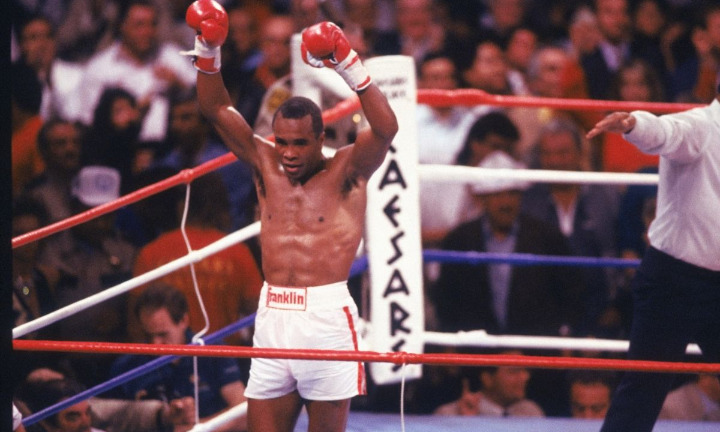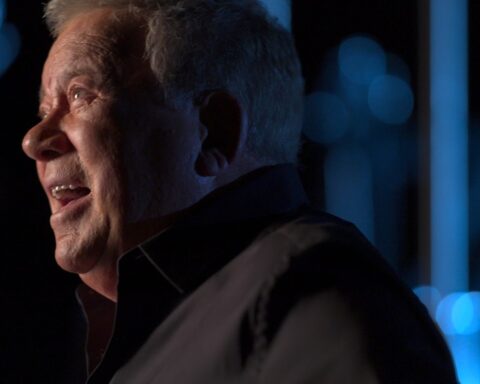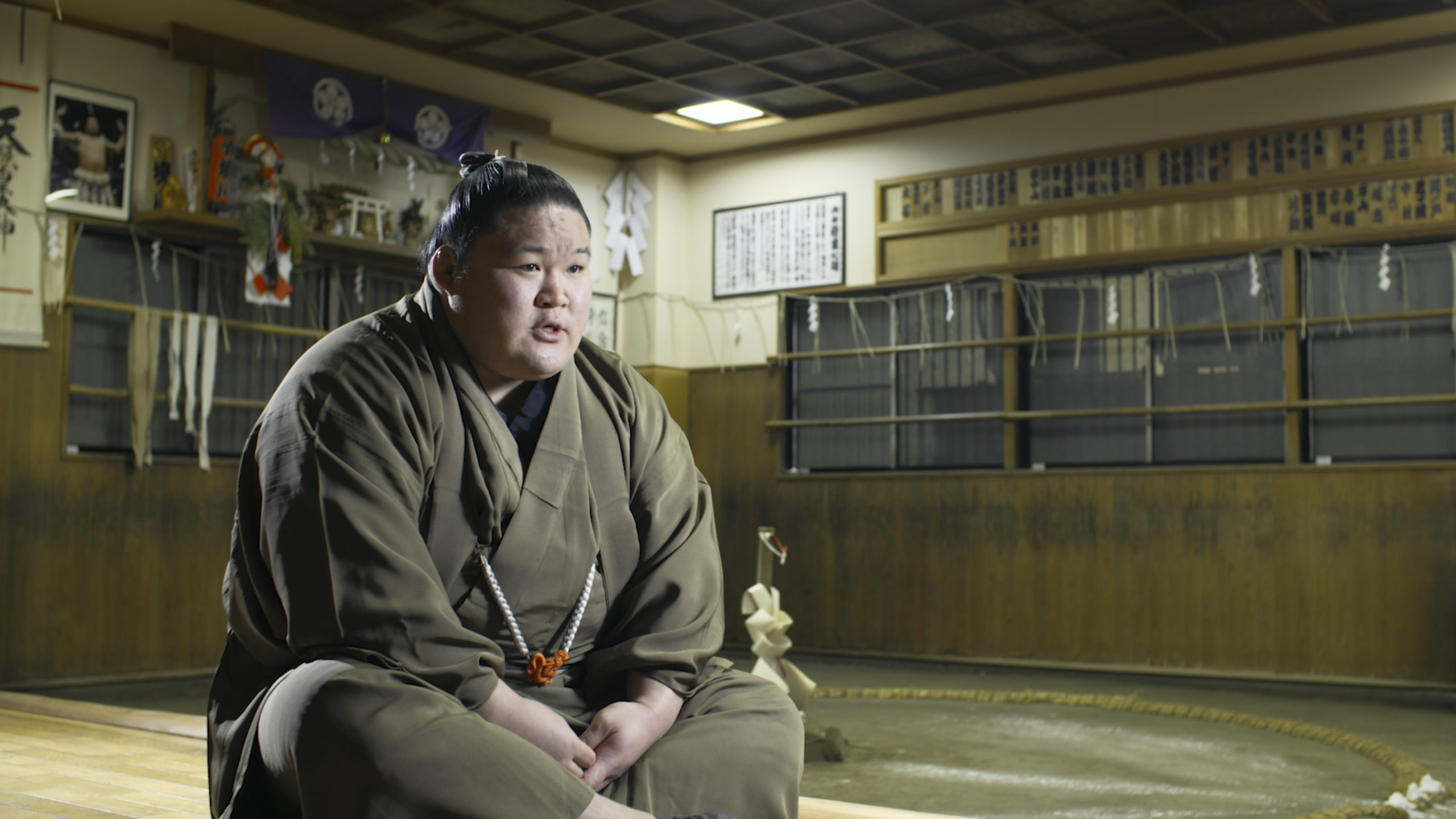“Boxing, for me, was a way of making a political statement,” says Sugar Ray Leonard in The Kings. Leonard is one of four boxing champions at the heart of The Kings, an engrossing documentary mini-series that explores the sport’s final golden age. Leonard explains how boxing was a chance to prove his worth to the world at a moment when Black lives were dismissed and devalued in America’s economic system. By fighting in the ring, Leonard says he could change the narrative that saw Black Americans primarily through the lenses of crime stories on the evening news.
Unfolding during the years in which Ronald Reagan held the presidency in the White House, the boxing matches of The Kings reflect a winder social fight as the repercussions of Reaganomics and his administration’s war on drugs came down especially hard on Black Americans and people of colour. Leonard’s hope was to inspire audiences with the image that anyone could make their way in America by fighting the good fight. As several interviewees in The Kings observe, Leonard’s philosophy of the all-American work ethic echoed Reagan’s own message.
Leonard is one of four boxers profiled in The Kings and although the other three aren’t quite as cozy a fit with the world of Reaganomics, director Mat Whitecross (Oasis: Supersonic) presents the case that the drama in the ring reflected the world outside of it. This thesis is by no means a new one—many, if not most, sports docs position the arena as symbolic of the cultural pulse. However, in chronicling the careers of Leonard and fellow boxers Roberto Duran, Marvin Hagler, and Thomas Hearns, known as the “Four Kings” of the ring, The Kings crafts an absorbing essay. The series captures America in a moment of change as it struggled to finds its best foot forward in the interval between the goodwill of Muhammad Ali and the nightmare of Mike Tyson.
The Kings uses a dense collage of archival materials to chronicle this chapter of sports history. The four episodes find narrative arcs between the different bouts in the ring with the Four Kings. From the dance of egos between Leonard and Hagler to Hagler’s intense tussle with Hearns to Duran’s knockout punches that made him the pride of Panama, one could easily spend hours poring over the details of each fight. While the 1985 fight between Hagler and Hearns might be the showpiece of the series, the final episode delivers some knockout blows as it explores how some Kings knew when to surrender the crown, while others found their heads hanging heavy while clinging to their former glory.
Leonard admittedly sits atop a higher thrown that the other Kings, at least as a documentary character. On one hand, this facet simply reflects the series’ choice to position Leonard as an embodiment of the values of the Reagan years, or at least the image one had to create to be a mainstream success. Moreover, Leonard simply provides stronger soundbites, clips, and narrative arcs than the other boxers do. Sometimes the camera just takes to one character between than others, and the archival images illustrate how Leonard used his charisma and showmanship to transform his athleticism into a truly recognizable brand. The Kings echoes the early chapters of Ezra Edelman’s OJ Simpson doc Made in America as it astutely situates one man’s celebrity within the larger social fabric that propelled him to stardom.
The Kings perfectly captures the excess of the 1980s and the now-defunct mania around event boxing as the cachet of prizefights dwindled. Long after Hagler and Hearns knew to call it quits, Leonard and Duran sparred in not one but two grudge match revivals. Long past their prime, but still commanding over $10 million for a single fight, their quest for glory asks what price a man will pay to be the best in his field. However, as the boxers trade blows and take beatings in pursuit of the purse, the doc illustrates how the mentality of this period in American capitalism defined a person’s value by one’s ability to display wealth. Again, this isn’t new or even unique to 1980s—it’s just especially telling to look at a period that didn’t offer as wide a range of programming today. The sheer amount of footage of these fights speaks to the dog-eat-dog appetite of the Reagan era.
As the Kings battle in a game of thrones to become the best, the doc observes the changing political context that makes the world watch their matches in awe. The Kings notes a restless nation as Jimmy Carter’s progressive politics couldn’t defend the USA from the charm of Ronald Reagan. Shrewdly making this battle of titans a doc for its time, The Kings repeats Reagan’s ominous promise to “Make America great again.” It evokes a previous era in which mainstream America clung to the bygone ideal of the postwar years. Notably, the archives and the interviewees perceive that Reagan sold a message of white nationalism, which made the rise of these four boxers especially notable as Leonard’s (mostly) squeaky-clean image won favour with the establishment, while Duran’s tough persona ensured that the tensions between the USA and Latin America pervaded each of his marquee fights.
The boxers join a chorus of boxing promoters, sports journalists, and commentators in a dense audio track that layers numerous interviews atop the archives. Every visual of The Kings is pulled from records of this golden chapter of sports history. Not one frame features a contemporary image and yet it feels freshly revitalizing. The Kings evokes the essayistic collage of films like Senna and Amy with its dexterously assembled tapestry of archives that combines the old and the new, and it’s no surprise that the series credits James Gay-Reese, producer of those two Kapadia films, along with Diego Maradona’s Paul Martin and Supersonic’s Fiona Nielson. The breadth and depth of material ensures that each fight is not merely a blow-for-blow clash between titans, but rather an illustration of America’s own war of values.
Aided by a nimble cut team that includes film editors Rory Gordon, Brett Irwin, Iain Kitching, and Paul Monaghan, who splice the fights together with the rise and fall of America during the Reagan years, the doc energetically stands to make a boxing fan out of anyone. The bouts remain thrilling thirty years later, while the wins and losses gain resonance thanks to the robust political backdrop that unfolds with the fights.













